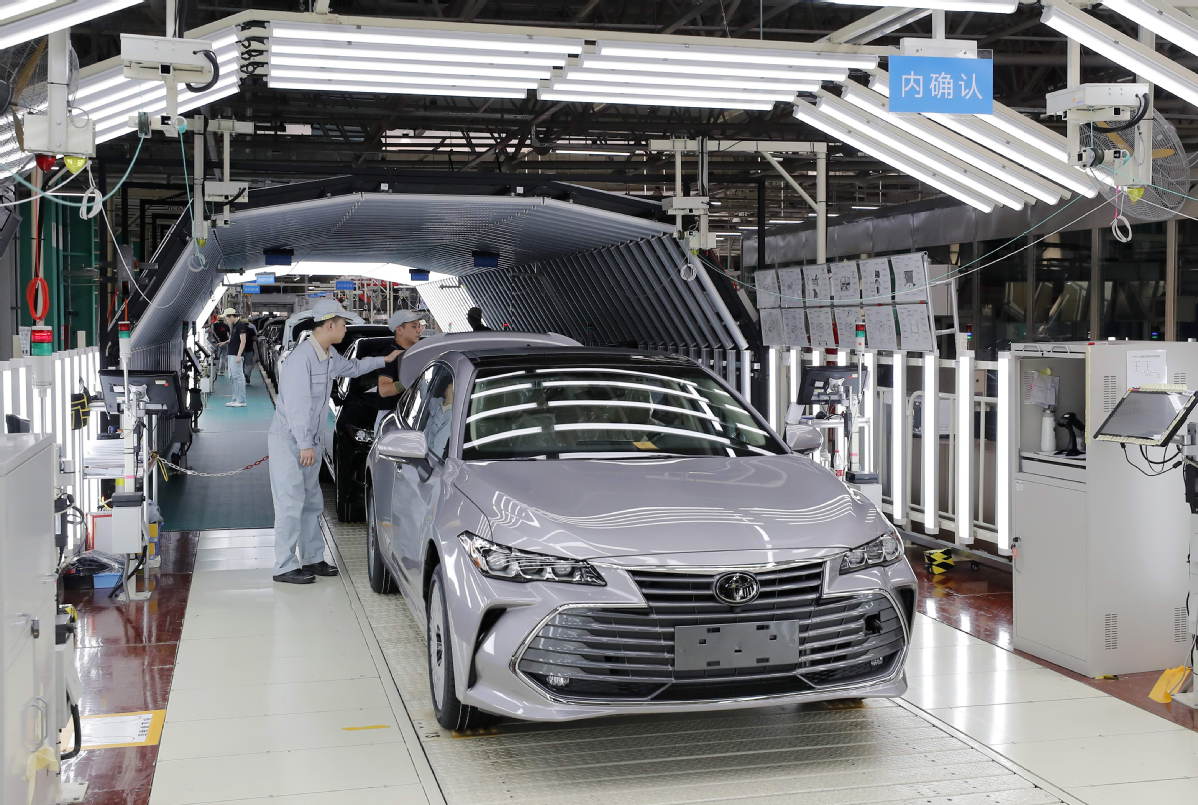Experts: Revised negative list to help increase global investment


China's shorter negative list for domestic and global investors will further ensure its status as one of the top global destinations for foreign direct investment and boost business confidence in many partner economies, said officials and business executives.
Their comments came after the Chinese government released the updated market access list for 2019 last week. The new list has 131 items, down from the 151 in 2018. In comparison with the negative list for foreign investment market access released in June, the unified list applies to all market players, including domestic and foreign investors.
A negative list rules which economic activities are prohibited, while all others are considered to be allowed.
"The revision of the negative list demonstrates China's continued willingness to deepen reform and opening-up to benefit companies entering its market," said Bian Yi, director of international cooperation bureau at Sino-German (Shenyang) High-end Equipment Manufacturing Industrial Park in Liaoning province.
Bian has engaged in investment and related work for over a decade and said that many foreign companies had called her recently for further information on the new policies for foreign investment.
"I can certainly feel their enthusiasm and rising expectations for China's huge consumer base and diversified market demand," said Bian.
Liu Jie, vice-president of the United States-based medical equipment provider Carestream Health Inc, said China has cut the number of sectors and businesses that are off limits for both domestic and foreign investors in the 2019 negative list for market access.
"This makes market access management more open, inclusive and predictable, while improving market vitality," he said.
As the latest negative list eases market access in a number of sectors, including the establishment of nursing homes and social welfare institutions, it will further open up the country's service industry to both domestic and overseas businesses, said Li Hongbiao, a senior researcher from the Revitalization Research Institute of Shenyang-based Northeastern University,
The previous foreign investment negative list mainly dealt with the entry permit issue, while the new negative list also addresses a wider range of issues in the services sector, he said.
Even though trade tensions, geopolitical risks and concerns about a shift toward more protectionist policies have further weakened business confidence, China's ability in attracting FDI has remained strong as many multinationals such as ABB, BASF, Procter & Gamble, Saudi Aramco, BMW and Cargill added investment in the country this year.
The FDI into the Chinese mainland expanded 6.6 percent year-on-year to 752.41 billion yuan ($107 billion) in the first 10 months of this year. More than 1,300 major projects with investment of more than $50 million have been launched this year, up 5.4 percent from the same period last year, data from the Ministry of Commerce showed.
"China is not only our largest market in the world but also a leader in innovation and related services," said Jochen Goller, president and CEO of BMW Group China. "It is thus a country of strategic priority for us."
In addition to attracting FDI, China also adopted the negative list system for the first time to conduct negotiations on services trade and investment in the second phase of China-South Korea Free Trade Agreement talks since late March of 2019, according to the Ministry of Commerce.
If the negotiations with South Korea are successful, it means that China's negative list system can push the country to further optimize this system to support various economic activities, not only available in its domestic economic areas, said Bai Ming, a researcher at the Chinese Academy of International Trade and Economic Cooperation.
Introducing negative list in the FTA negotiation indicates that China is keen to further connect this mechanism with global markets, he said.



































